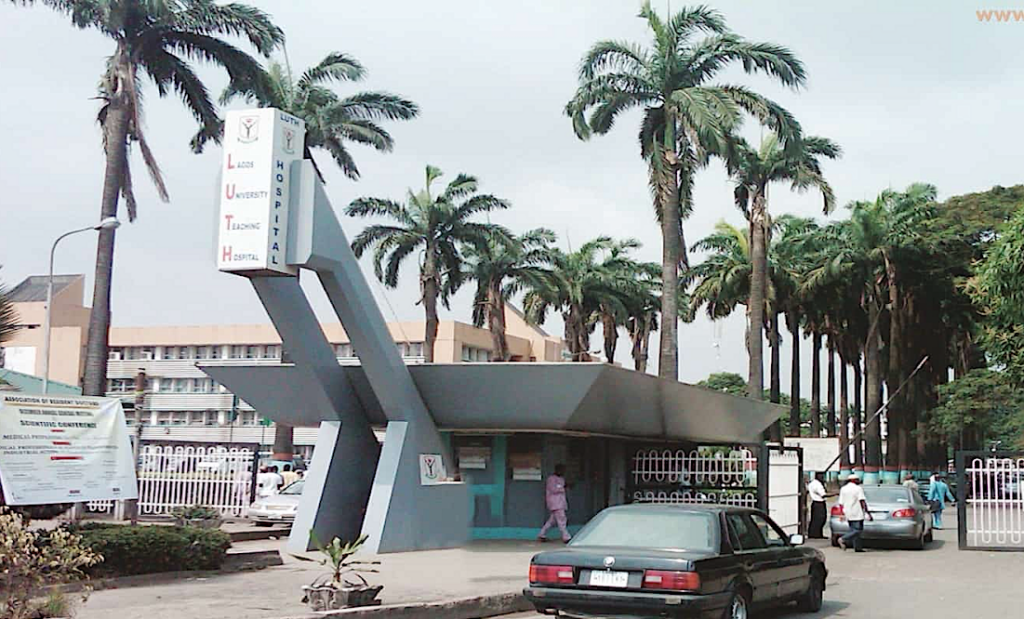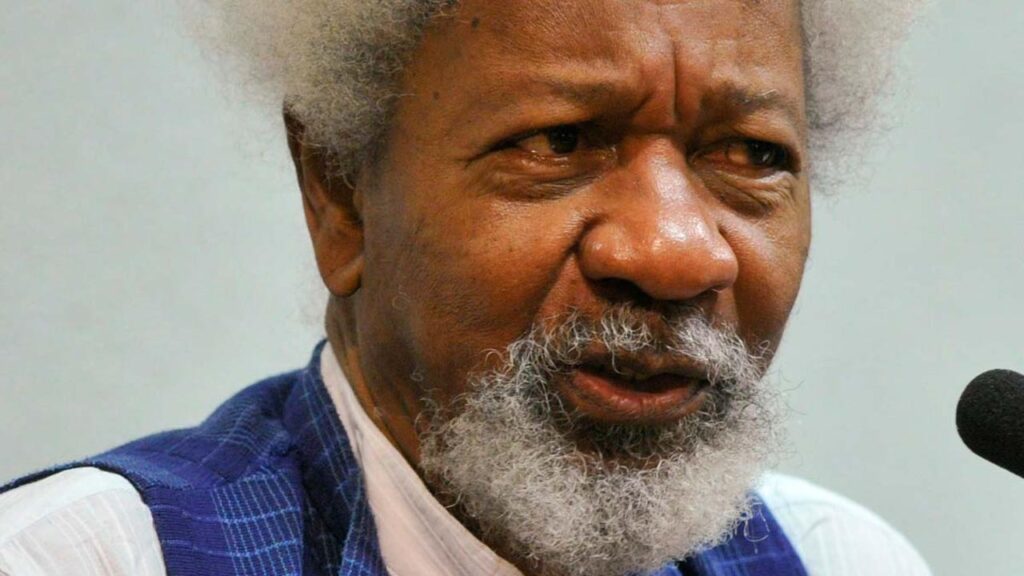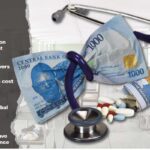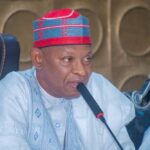
.FG mulls legislation to sanitise health sector
Classified as a social service, health is one of the pivotal elements of human capital development. In the same vein, it is central is to the economic development of a country. It is mostly said that a healthy nation is a wealthy nation.
Against this background, any nation that wants to attain development must make conscious investment in the health sector.
Nigeria faces a host of healthcare problems, from budget limitations, lack of support infrastructure, mismanagement and poor governance. The lack of allocation of funds to the health sector has led to understaffed and underfunded medical centres. In some states in Nigeria, doctors are owed salaries, leading to strikes that often last for months. Patients are forced to sleep on bare floors and battle mosquitoes in teaching hospitals across the country.
However, many government-owned hospitals in Nigeria are bedeviled by myriads of challenges, ranging from descript infrastructure, paucity of funds, inadequate personnel, higher operating cost, outrageous electricity bills, among others.
Power cuts, low pay and challenging work conditions for medical professionals are compounded by Nigeria’s larger problems of economic instability, insecurity and nepotism in recruitment processes,
Despite continuous huge investments in power, Nigeria has suffered over 200 grid collapses in nine years with as many as 12 in 2019. This problem has resulted in doctors performing surgeries using candles, lamps and mobile phones.
Investigations by The Guardian indicate that over 60 teaching hospitals, including Federal Medical centres, are facing dire financial strait.
From the Lagos University Teaching Hospital (LUTH) to the University College Hospital (UCH), Ibadan, the Jos University Teaching Hospital, Ahmadu Bello University Teaching Hospital (ABUTH) and Abubakar Tafawa Balewa University Teaching Hospital (ATBUTH), and down to the University of Nigeria Teaching Hospital, the narrative is almost the same.
The effect of dire financial straits came to the fore recently when the Ibadan Electricity Distribution Company (IBEDC) disconnected power supply to the premier teaching hospital over a debt running to N500 million.
The issue was later resolved after the payment of some amount of money, consequently power was restored to the tertiary health facility.
Speaking on the difficulties faced by the hospital, its Chief Medical Director (CMD), Prof. Jesse Otegbayo, lamented high overhead cost of running hospitals in Nigeria
Professor Otegbayo said the running cost is far ahead of the amount the facility receives from the Federal Government monthly.
The CMD pointed out that the same situation is obtained in virtually all teaching hospitals in the country.
The CMD said: “Today, there is no federal teaching hospital that does not owe their respective power company. IBEDC has been charging us industrial tariff, in spite of our appeals that we render humanitarian-cum-social services. You will notice that Distribution Companies (DISCOs) increase their tariff as they will, and frequently too.
“As a hospital, we cannot do that. If we are to charge the appropriate fee for services, an average person will not be able to access our services.

“There is no month that we don’t pay about N45 million to IBEDC. They give us a bill that ranges from N45 million to N71 million monthly, whereas we receive about N14 million from the government as our overhead monthly.
“We supplement the payment for electricity from our internally generated revenue (IGR). Also, a substantial part of our indebtedness is for the University of Ibadan’s College of Medicine, which is situated within the University College Hospital, Ibadan.”
UCH, strategically located in Ibadan, the then-largest city in West Africa, is also the seat of the first University in Nigeria.
The physical development of the hospital commenced in 1953 in its present site and was formally commissioned after completion on November 20, 1957.
The hospital was initially commissioned with 500-bed spaces. Currently, the hospital has a total of 1445 bed spaces: 1072 beds at the main hospital, 100 beds at Otunba Tunwase National Paediatrics Centre, 60 beds at Okuku Comprehensive Healthcare Centre, 50 beds at Sepeteri Comprehensive Healthcare Centre and 163 examination couches.
“Apart from power from the IBEDC payment, we spend about N20 million on diesel monthly aside from the cost of buying and maintaining our generators.
“I have escalated our challenges to the Ministers of Power and Health,” the CMD said.
The professor, therefore, called on power distribution companies to reduce their tariff; alternatively, government should be paying power bills for essential services.

At LUTH, it was gathered that the hospital pays a monthly bill of N120 million but receives a sum of N14 million subvention from the Federal Government to take care of power and other utilities.
The immediate past Chief Medical Director of the hospital, Prof. Chris Bode, who disclosed this, said LUTH spends a third of its IGR on power.
The professor said energy cost is a significant burden, considering the Hospital has to pay for laundry, feeding, security, cleaning, gardening and so on.
Prof. Bode said: “Available, affordable and sustainable electricity supply remains illusory in Nigeria because, till date, the nation has not addressed the requisite policies to actuate them.”
This has largely stemmed from a palpable greed and insincerity that permeated the unsuccessful unbundling of the power sector.
“With a monthly power bill of over N120m, the hospital spends a third of its IGR on power. The total monthly government subvention towards all utilities is N14m for LUTH. Energy cost is thus a significant burden, considering the Hospital has to pay for laundry, feeding, security, cleaning, gardening, and so on as outsourced services.
“The cost of both power generation equipment and gas are denominated in US dollars. The exchange rate of the Naira is less than 12 per cent of what it was six years ago. This uncompetitive value of the Naira has been discouraging to the investors who installed the hardware. It also eroded the hospital’s purchasing power which has stunted projected development goals.”
He said the teaching hospital needs a 2000KV backup generator to cover critical areas during periods of infrequent outages.
Bode asserted that the cost of power to hospitals is crippling ,adding that this burden should be taken off the shoulders of teaching hospitals to enable them focus on their core competencies.
To get out of the quagmire, the professor of surgery urged the Federal Government to give tax incentives to the gas suppliers and power generating organisations to lower the runaway unit cost of energy.
He also charged the Federal Government to consider picking up the tab for power supply to these establishments.
He said: “Future plans should also harvest and repurpose heat energy, design and redesign buildings for effective cooling and ventilation with minimal resort to air-conditioning. All these can also earn the hospital some good carbon credit in hard currency.
“For hospitals such as LUTH, the Federal Government should give tax incentives to the gas suppliers and power generating organisations to lower the runaway unit cost of energy.
“If and when the public power utility improves, the door should not be shut against the use of the public grid to lower the cost of power to the Hospital. It will however require the re-establishment of a dedicated power line that can guarantee at least 20 hours of power / day as happens in some establishments now.
“Since power is paramount to successful service delivery in any tertiary health institution, the Federal Government should consider picking up the tab for power supply to these establishments. This will free the management of the hospitals from the perennial headache of power supply and allow them to focus on their core mandates.”
The Lagos University Teaching Hospital and the Medical School Complex was enacted by a Cabinet decision made in April of 1961 following recommendations made by the Sir Eric Ashby’s commission on Post-Secondary Education in Nigeria.
Establish a full-fledged Medical School in Lagos as soon as possible to make use of the existing medical institutions. From a humble beginning of 330 beds, LUTH today, has 761 beds.
LUTH today is a multi-billion Naira enterprise with lots of world class equipment in various units, which needs replacement or rehabilitation but are suffering due to lack of funds to continue to maintain services at the optimum level of its early years.
Speaking on the development, a power supply researcher and Head of Electrical and Electronic Department, University of Ibadan, Dr. Oladayo Olakanmi, urged the government to continue subsidising until the energy supply becomes stable.
Olakanmi, an associate professor, said: “The Federal Government should continue subsidising until the energy supply becomes stable and all the consumers are metered anything short of this is unfair to the consumers, and will amount to robbing Peter to pay Paul.”
Also speaking, another energy scholar, Prof. Akin Iwayemi said hospitals should find an alternative in the medium term, while also calling on the Federal Government not to abandon its responsibility in the short term.
He also urged UCH to look the way of renewable energy.
“There is need to find another alternative in the medium term. In the short term the Federal Government should not abandon its responsibility. UCH should also consider a payment plan with the IBEDC. UCH should go renewable in the future,” Iwayemi said.
Meanwhile, the Federal Government said it would soon come up with legislation that is expected to regulate the healthcare sector to eliminate quacks and ensure improved service delivery.
Minister of State for Health, Dr. Tunji Alausa, stated this on Friday, when he paid a courtesy call on the governor of Ogun State, Prince Dapo Abiodun, at the Presidential Lodge, Abeokuta.
Alausa decried the unwholesome practice where untrained people are allowed to operate in the health sector.
He also lamented the prevalence of quacks from where heinous act, such as organ harvesting takes place.
The minister said: “We will be pushing for a new regulation to regulate the healthcare sector as more than 60 percent of the nation’s healthcare is in the hands of the private sector without adequate supervision.
“You see hospitals, laboratories, and diagnostic centres being run without anybody checking on what they are doing and these are some of the places where illegal practices like organ harvesting are taking place.
“What we are going to do at the federal level is to set up a Health Facility Regulatory Commission that will start regulating the standard of health care across the country and we expect the states to set up their own regulatory bodies as well.”
Alausa also hinted that the federal government is in the process of starting a programme that would increase the production of healthcare providers, starting with the admission of 10,000 medical students every year, while admission for nurses would increase from 28,000 to 68,000, annually.
Throwing more light on the Sectoral Approach Programme launched by President Bola Tinubu, the minister explained that one percent of the consolidated fund was for Basic Health Provision, 55 percent for Primary Healthcare Centres, and 45 percent for National Health Insurance, while five percent goes into Emergency Services.
He said Ogun State has been diligent in managing the Basic Health Provision Funds, which is meant for Primary Healthcare Centres, calling on the governor to adequately monitor the fund to ensure that it is directed to where it was meant for.
Alausa stated that his visit was to see how the federal government would strengthen its relationship with state governments in pushing the President’s mandate which is to revive, rejig, evaluate, and overhaul the healthcare delivery system for the benefit of Nigerians.
Responding, Governor Abiodun, said his administration would not hesitate to replicate any federal government action aimed at eliminating quackery in the health sector.
While pledging to support the agenda of President Bola Tinubu’s led Federal Government to reposition the health sector, Governor Abiodun noted that as the industrial, educational, and religious hub of Nigeria, with the influx of people on daily basis, it is imperative to have adequate health facilities and qualified manpower to provide health care services to the people of the state at all times.













